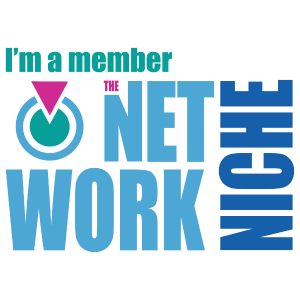The Importance Of Respite On Your Physical Health
/Life seems to get busier the older you get, and when you’re in your 20s and 30s; there’s little chance of anything slowing down. A busy and fulfilled life can be a positive thing; however, many people forget the importance of slowing down when they need to and don’t take time out to recuperate and recover. Knowing when it’s time for respite is an essential part of continuing your journey through a successful life, and will help ensure that burnout isn’t around the corner. The following are some tips and ideas for those who are beginning to feel fatigued or struggling with their everyday circumstances; you can start by making yourself a coffee and sitting down to have a read.
Work And Career Worries
If you’ve worked hard at college or university and are on a career path; you can often forget that slowing down on occasion can be a helpful part of your success. If your work is piling up and you’re sat, feel overwhelmed, at your desk regularly; it might be time to think about the changes you need to make so that you can pick up momentum once again. Firstly; remember that you’re not alone, many younger employees are feeling the pressure to be the best at their job and their mental and physical health is suffering as a result. In the digital age, you are confronted with everybody’s best version of their lives, so wherever you look; someone is getting promoted or traveling with work, and generally succeeding 100% of the time. However, this is not the case; they, like you, are merely trying to keep up with the crowd.
Begin by talking to a senior member of staff, or head for your boss’s office, and explain how you’re feeling. The likelihood is that they’ve been in your shoes when they were younger and will empathize with the pressure you’re experiencing. Book some time off to rest (not head to Cancun for that sort of vacation); this will give you an instant boost as you’ll have something to look forward to. Seek counsel, so that you can mind-manage successfully, and tackle your daily tasks in a positive manner again. If you stick to your habitual behavior patterns and become tired, stressed, and fatigued; it won’t be long before you burn out completely and your physical health will suffer.
Be kind to yourself during your free time and breaks; take a look here: https://www.ditchthelabel.org to discover some ways to chill out and reduce stress in between your work schedule. Prioritize your wellbeing over those of others for awhile and cancel plans that you feel will only make you more tired. The more you take regular time out, especially during busy and eventful periods, the better shape your mind and body’s health will be in, and you’ll be able to continue working successfully.
Unhealthy Choices And Habits
When you’ve been going through a difficult period in your life, and the challenges are wearing you down; it can often be easy to slip into unhealthy habits and lifestyle patterns. If close friends and family are voicing their concerns over your behavior; it’s time to listen to them and take a step back to understand what and why you’re doing what you’re doing. If doing something long term is negatively affecting your health; you need to be strong and make changes so that you can get back to a healthy and happy life again. If you’ve reached a point where you feel you’re unable to change without outside help; take a look here: https://www.columbusrecoverycenter.com/ to learn about the services and options that are available to you. Taking a significant amount of time to gain help and respite will ensure that you can continue moving forward in life and will pay off in the long run.
Take some time to learn your patterns of behavior; if you’re likely to binge on something in a certain environment, it’s time to stop yourself being there in the future. Changes can be difficult, but you’ll be a stronger person both mentally and physically afterward, so you can reach your goals. Perhaps, as mentioned previously, your job is bringing you too much stress. It might be time to consider retraining or moving jobs; as too long in a negative situation or toxic work environment can cause depression and physical health problems. Look into part-time work and study options; it’s never too late to change your life, you just need a little bravery and plenty of good advice.
Positive People And Relationships
For any of the above ideas and advice to make an impact; you’ll need to ensure that the people around you are positive forces in your life. If friends and acquaintances are enabling negative habits, adding to your stress load, or don’t understand your need for respite and recovery; it might be time to cut ties with those people, or limit the contact that you have with them. Surround yourself with those who have your best interests at heart; if a friend is willing to stay in and watch a movie with you instead of going out to bars and nightclubs when you’re feeling low, keep communicating and spending quality time together. Great friends and family members will do all they can to build you up and ensure that your mental and physical health are well-looked after, so choose them wisely.
Never be fearful or ashamed to seek professional help or counseling; sometimes it can be difficult to share your thoughts and feelings with those who are closest to you. Talking through your issues and life with somebody who has an outside perspective, will be an instant weight off your shoulders and lead to a happier mind. People who are trained to help with mind management and mental health will have a wealth of knowledge and advice for you, and it’s worth investing your time and effort into finding the right person to help your progress and regain your motivation. So, it’s time to put yourself first and take some time to take care of your mind, which will lead to better physical health and your ability to continue on this fast-paced journey.
LETS GET SOCIAL....
























